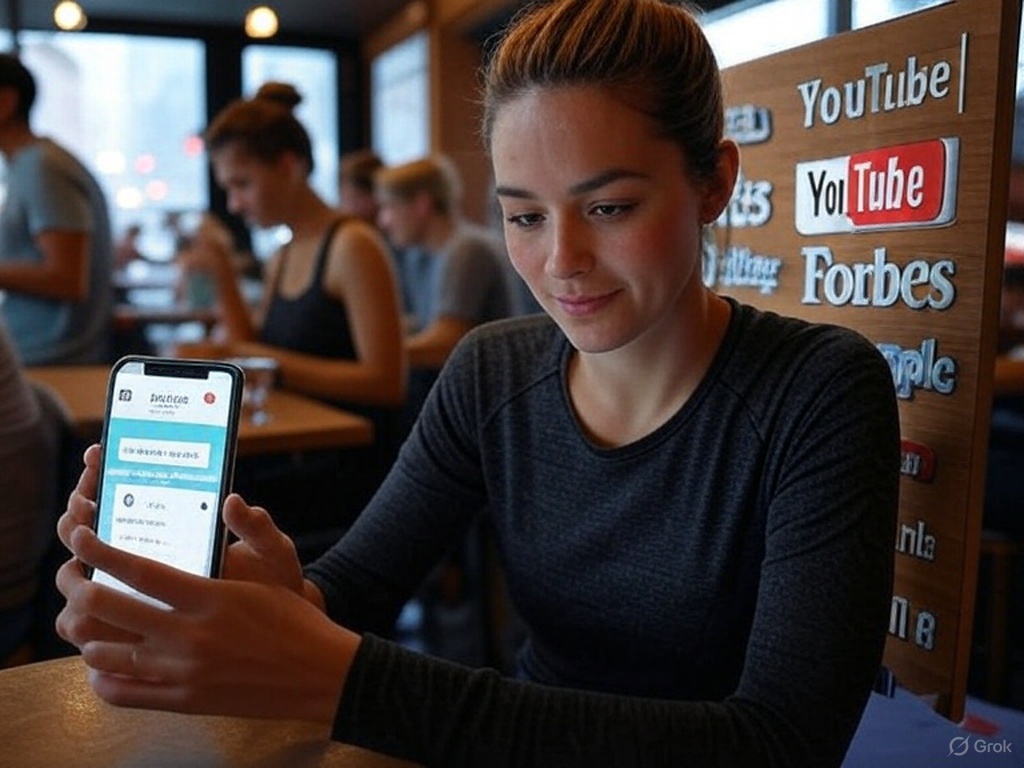The creator economy is booming, and every year, platforms and media outlets release their coveted “best creators” lists, spotlighting individuals who’ve made waves in the digital space.
A recent viral LinkedIn post by Monica Khan, co-founder of Bay Area Creator Economy, sparked a conversation about the criteria that define these top creators.
 By analyzing lists from major players like YouTube, Forbes, Rolling Stone, People Magazine, and The Hollywood Reporter, Khan highlighted the key metrics that seem to dominate the selection process:
By analyzing lists from major players like YouTube, Forbes, Rolling Stone, People Magazine, and The Hollywood Reporter, Khan highlighted the key metrics that seem to dominate the selection process:
- Engagement (YouTube spotlighting MrBeast for his jaw-dropping viewer interaction)
- Monetization (Forbes naming Emma Chamberlain as a revenue powerhouse)
- Cultural Impact (Rolling Stone recognizing Kai Cenat for shaping trends)
- Recognizability (People Magazine featuring Nara Smith as a household name)
- Versatility (The Hollywood Reporter praising Prajakta Koli for her multi-faceted content)
These lists tend to focus on creators producing entertainment or edutainment (entertainment with an educational twist) content. Think viral challenges, lifestyle vlogs, or storytelling with a light educational spin. But there’s a glaring gap: purely educational creators—those who focus on deep, transformative learning—are overlooked in 9 out of 10 cases.
This raises the question: are we celebrating the right voices in the creator economy?
The Untapped Power of Educational Creators
 Educational creators might not be grabbing headlines, but their impact is undeniable. According to data from The Tilt, 78% of full-time creators are earning a living through educational content like workshops, online courses, and communities. Platforms like Teachable and Kajabi report that their creators have collectively generated over $1 billion in revenue.
Educational creators might not be grabbing headlines, but their impact is undeniable. According to data from The Tilt, 78% of full-time creators are earning a living through educational content like workshops, online courses, and communities. Platforms like Teachable and Kajabi report that their creators have collectively generated over $1 billion in revenue.
What’s more, educational creators often boast a higher lifetime value (LTV) per customer. Unlike entertainment creators who might need millions of followers to sustain their income, educational creators can achieve seven-figure revenues with just a few hundred dedicated “superfans” who invest in their premium offerings.
This efficiency comes from the deep trust and value they provide. A fan might watch a MrBeast video for a quick dopamine hit, but a student of an educational creator might spend hundreds or thousands of dollars on a course that changes their career trajectory. So why are these knowledge-driven creators consistently sidelined in “best of” lists?
 Also read:
Also read:
- Remember When Meeting Friends Was Simple? Mozi Brings Back Real Connections
- Don’t Threaten Creators on Teachable: A Cautionary Tale
- Substack Surges: 1 Million Paid Subscribers Added in Just Four Months
Shining a Light on Educational Creators
 Inspired by Monica Khan’s post, Kajabi decided to shift the narrative by releasing their own Top 24 Educational Creators list for 2024, spotlighting those who “bring the light of knowledge.”
Inspired by Monica Khan’s post, Kajabi decided to shift the narrative by releasing their own Top 24 Educational Creators list for 2024, spotlighting those who “bring the light of knowledge.”
The list includes heavyweights like Ali Abdaal, known for his productivity and study hacks; Colin and Samir, who break down the creator economy with insider insights; Jay Clouse, a community-building expert; and Alex Hormozi, a business scaling guru whose no-nonsense advice has built a cult following.
The full list is available on Kajabi’s site, and it’s a refreshing acknowledgment of creators who prioritize substance over flash.
But there’s one name we’d add to this roster: Courtney Fischer, the fitness influencer behind FitWithCoco. Fischer made headlines this year by leaving a major fitness platform to launch her own independent business. With a lean team — just a couple of freelancers and two full-time employees — she scaled FitWithCoco to eight-figure revenue in 2024.
Her platform offers personalized fitness programs, and her community of superfans, affectionately dubbed “COCOnuts”, has rallied around her authentic, results-driven approach. Fischer’s success proves that educational creators don’t need massive teams or viral stunts to make a lasting impact — they just need to deliver real value.
Why Educational Creators Deserve More Recognition
The bias toward entertainment and edutainment creators in “best of” lists reflects a broader trend in the creator economy: platforms and media outlets often prioritize metrics like engagement and recognizability, which favor flashy, viral content. But this overlooks the quiet, transformative work of educational creators who are empowering their audiences with skills, knowledge, and tangible outcomes.
 A fitness program that changes someone’s health, a course that launches a new career, or a community that fosters lifelong learning—these are the kinds of legacies that deserve celebration.
A fitness program that changes someone’s health, a course that launches a new career, or a community that fosters lifelong learning—these are the kinds of legacies that deserve celebration.
Moreover, the data suggests that educational creators are a more sustainable model for the future of the creator economy. Their higher LTV means they can thrive without chasing the algorithm or pandering to fleeting trends. They build loyal, invested communities rather than relying on mass appeal. As the creator space becomes more saturated, this model of deep value creation might just be the blueprint for long-term success.
Who Would You Add to the List?
 Kajabi’s list is a great start, and Courtney Fischer’s story is a testament to the power of educational creators in niche spaces. But the conversation doesn’t stop here. There are countless other knowledge creators out there making a difference — who would you nominate?
Kajabi’s list is a great start, and Courtney Fischer’s story is a testament to the power of educational creators in niche spaces. But the conversation doesn’t stop here. There are countless other knowledge creators out there making a difference — who would you nominate?
Maybe it’s a coding instructor who helped you land your first tech job, or a language tutor who opened up a new culture for you.
Drop your suggestions in the comments—who’s your favorite educational creator, and why do they deserve a spot on the list? Let’s keep this conversation going!






